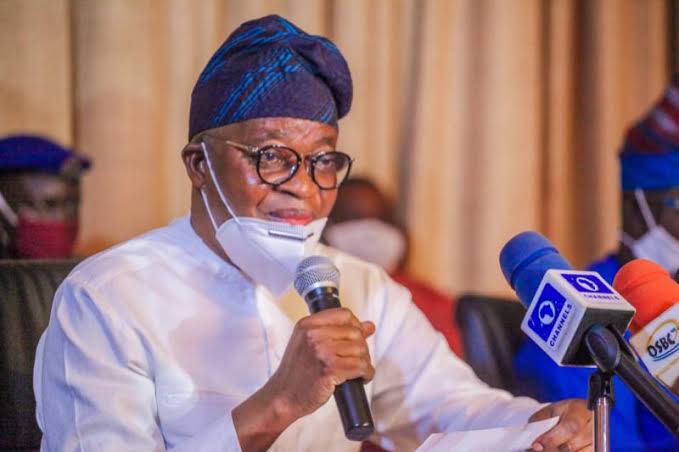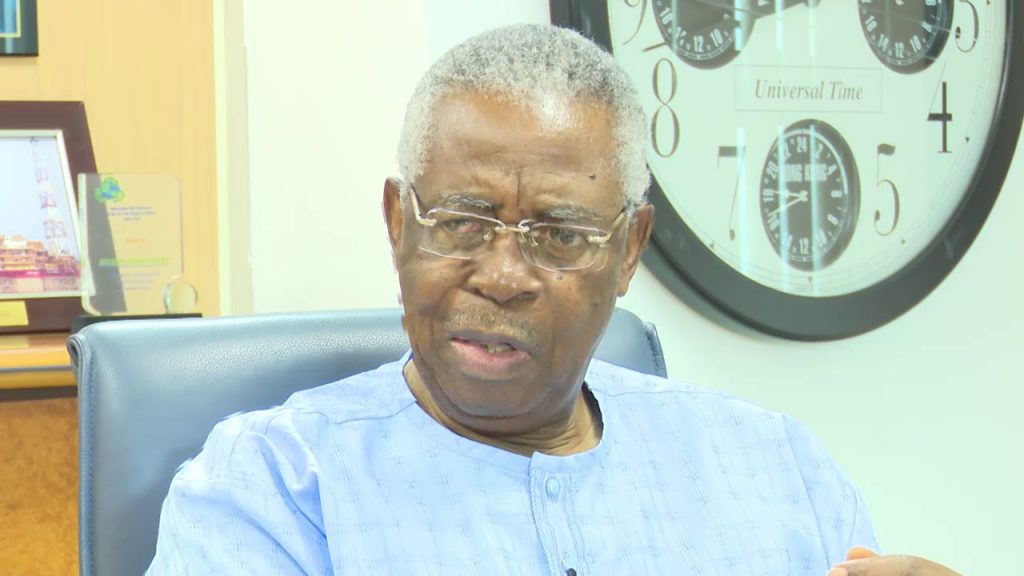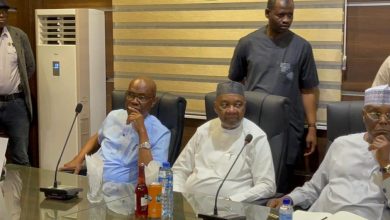GBOYEGA OYETOLA AND THE BLUE ECONOMY: Nigeria’s Maritime Set for a Revolutionary Economic Voyage

The establishment of a Marine and Blue Economy Ministry by President Bola Tinubu is a smart and innovative solution to killing many birds with a single stone. From revenue generation to job creation, tackling food insecurity, poverty alleviation, economic growth, and sustainable development, this will no doubt stand out as one of his biggest legacies, and the choice of a competent and efficient public administrator with a remarkable private sector background, Adegboyega Oyetola, to champion this national economic rebirth will equally turn out to be one of his best leadership recruitment decisions.
The blue economy, according to the World Bank, is the “sustainable use of ocean resources for economic growth, improved livelihoods, and jobs while preserving the health of the ocean ecosystem.”
It is a globally acclaimed concept that holds great promise for the long-desired meaningful diversification of Nigeria’s economy while conserving our marine resources and environment for present and future generations.
With clear regulatory frameworks, competent leadership, which the new minister adequately possesses, a conducive investment environment, and sustainable practices, among others, Nigeria’s economy and economic structure are indeed set for a revolutionary voyage on the ocean economy, also known as the blue economy.
What are the economic opportunities for Nigeria with this novel creation and its leadership?
1. Economic Diversification:
Amidst the dwindling economic fortunes of our country and the dire need for diversification of the economy, this is perhaps the most significant step towards diversifying the Nigerian economy in a very long time. The Marine and Blue economy sector holds huge potential to become a major source of revenue generation to complement our oil and gas earnings.
With a coastline of 852 kilometres bordering the Atlantic Ocean and a maritime area of over 46,000km2, inland waterways of 10,000 km, and 28 out of the 36 states accessible by water, Nigeria is naturally endowed to develop a multi-trillion naira productive and prosperous blue economy.
Therefore, diversifying Nigeria’s economy beyond land-based activities and along our coasts and water ways is critical to growing the nation’s Gross Domestic Product (GDP) and achieving sustainable development.
2. Foreign Direct Investment:
Blue economy has been recognized as the next great economic frontier with a projection of 3trillion US dollars per annum value by year 2030. This offers a great opportunity for Nigeria to attract global investments into an emerging sector of its economy.
Port infrastructure development, exploration and extraction of marine resources (e.g., fisheries, aquaculture, minerals), coastal and marine tourism (like resorts, hotels, cruise ship facilities etc.), development of the Nigerian inland waterways, shipping and marine transportation, renewable energy etc are various subsectors of the Nigerian blue economy that are quite attractive to significant foreign direct investments.
3. Foreign Exchange Earnings:
A sizeable component of the blue economy is made up of export-oriented industries and services with great foreign exchange earnings potential. This includes shipping, port services, fisheries and aquaculture exports, tourism, and mineral resource exploration. Hence, developing our marine and blue economy will position Nigeria to unlock this multi-billion dollar forex potential and positively impact the nation’s foreign exchange liquidity.
4. Strengthening the Naira:
For instance, in 2019, the CBN reported that Nigeria spends 1.2 billion USD on fish importation annually. By implication, fish and seafood are part of the major products depleting Nigeria’s forex reserves and bringing down the value of the nation’s currency.
Developing the fishery and aquaculture subsector of the blue economy will not only cut down on the importation of fish and reduce pressure on our foreign reserves but also help stabilise and strengthen the nation’s currency in the long run.
Furthermore, other components of the Blue economy that can help Nigeria to cut Forex demand and grow our reserves in oder to strengthen the Naira include establishment of a national ocean carrier, developing capacity to build ships locally, port decongestion, tourism etc.
5. Job and wealth Creation:
The entire blue economy value chain has the potential to generate thousands of jobs for Nigerians, particularly youths and women. From fisheries alone, Nigeria can create tens of thousands of jobs by developing our aquaculture industry to bridge the nearly 2.4 million metric tonnes of annual fish deficit.
According to the Nigeria Bureau of Statistics, after wheat and sugar, fish was the biggest agricultural import into Nigeria in 2022, and it has remained in the top five for many years. This is low-hanging fruit in the job and wealth creation potential of the Nigerian blue economy.
For instance, an ambitious blue economy reform in Morocco helped the country develop its aquaculture sector to generate jobs, especially for women, in rural areas where employment prospects are challenging.
When we create jobs for the citizens, we will increase our productivity and create wealth for the people and the nation.
6. Blue Financing:
Innovative financing solutions are crucial to unlocking the huge potential of the blue economy, and blue finance is an emerging area in green finance with growing interest from investors, financial institutions, and other stakeholders across the world that offers a range of financial instruments and initiatives for the development of a blue economy.
For instance, Blue Trust funds, Blue Bonds, Blue Loans and Blue Grants are all innovative financing instruments that set aside funds exclusively for blue economy projects and initiatives.
Sychelles, a small African country became the first country in the world to issue a sovereign blue bond in 2018 and just 3 months ago, Indonesia issued its first Blue Bond and raised 150 million US dollars. Nigeria also stands a great chance of tapings into this innovative global financing solutions to grow its maritime sector and the economy at large.
In terms of Adegboyega Oyetola’s capacity to lead these changes:
The newly appointed Minister is one of the few instances of technocrats who were able to replicate their private sector achievements in the public space. As a Governor, Mr. Oyetola revolutionized the sub-national public infrastructure delivery model through innovative project financing instruments in Osun State. He grew the state’s IGR by 60%, attained over 90% budget performance, governed without borrowing a kobo throughout his tenure, paid salaries and wages without owing workers in the 48 months of his stewardship, and handed over a 14 billion naira cash balance upon his exit.
In conclusion, as Nigerians eagerly await the full take-off of this very important ministry, one must not be unmindful of the enormous task and challenges associated with such a novel and huge task, but I am very optimistic that the ministry and Nigeria will greatly benefit from the administrative and leadership acumen of Mr. Adegboyega Oyetola to successfully midwife and lay a solid foundation for the development of our nation’s marine and blue economy.
By ‘Tunde Lekan Olatunji, Economic and Financial Expert. [email protected]




